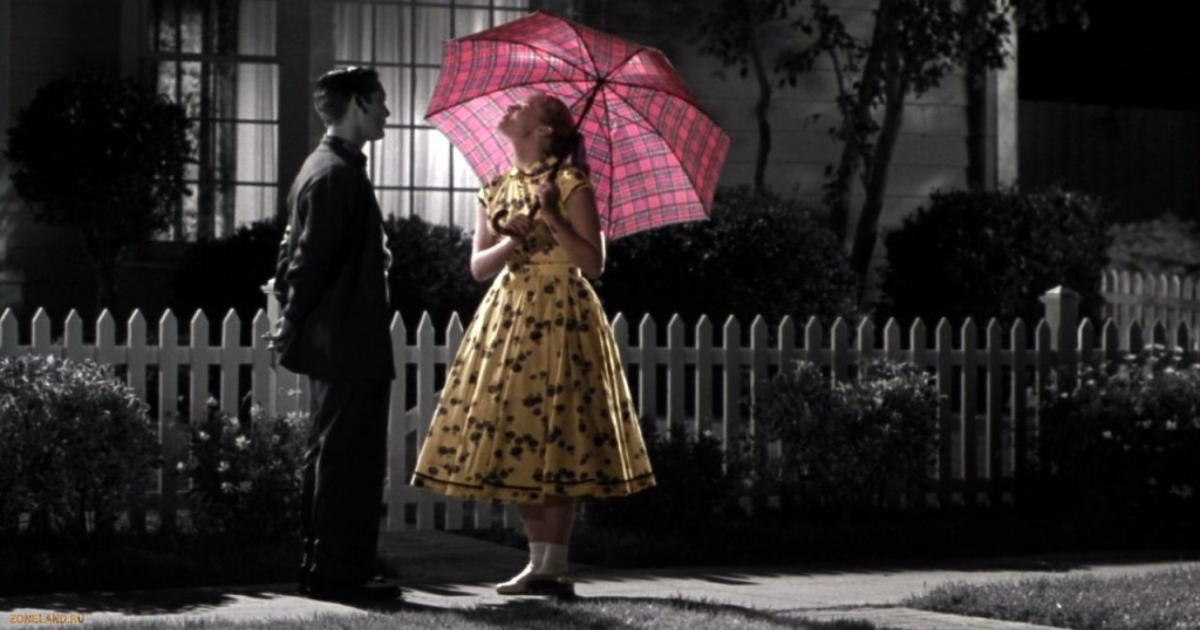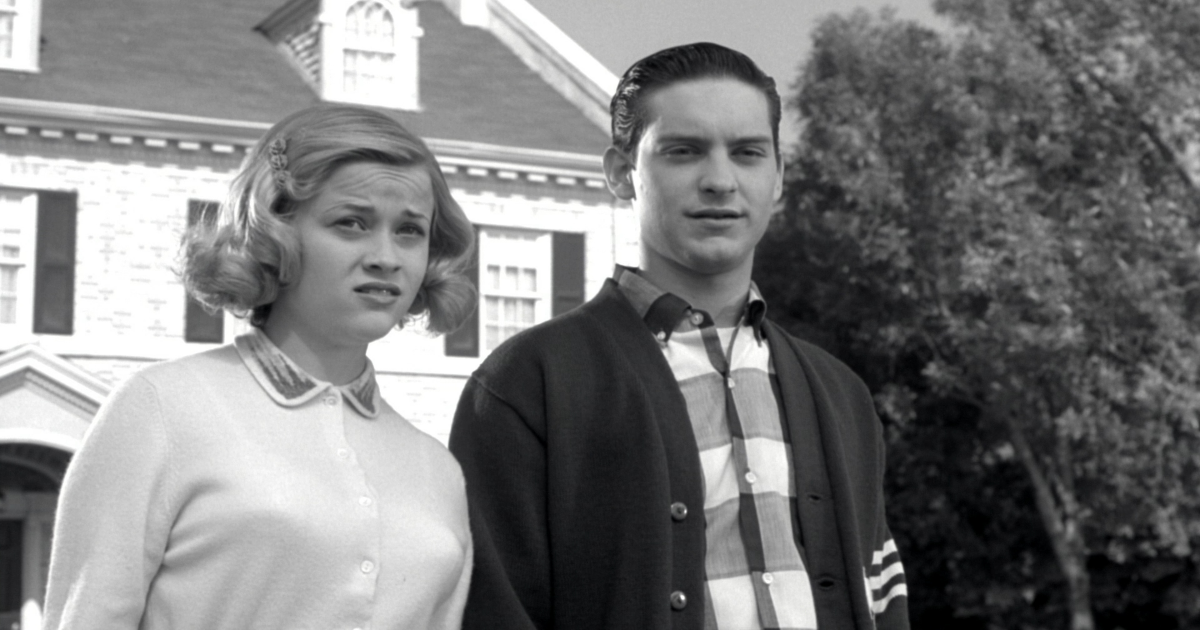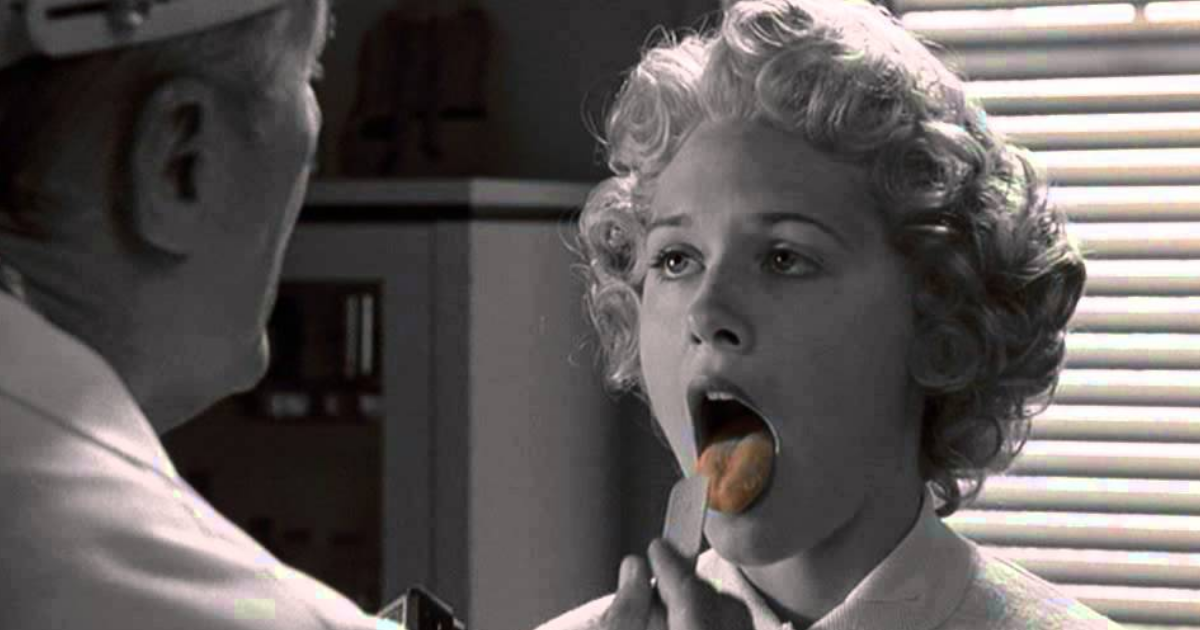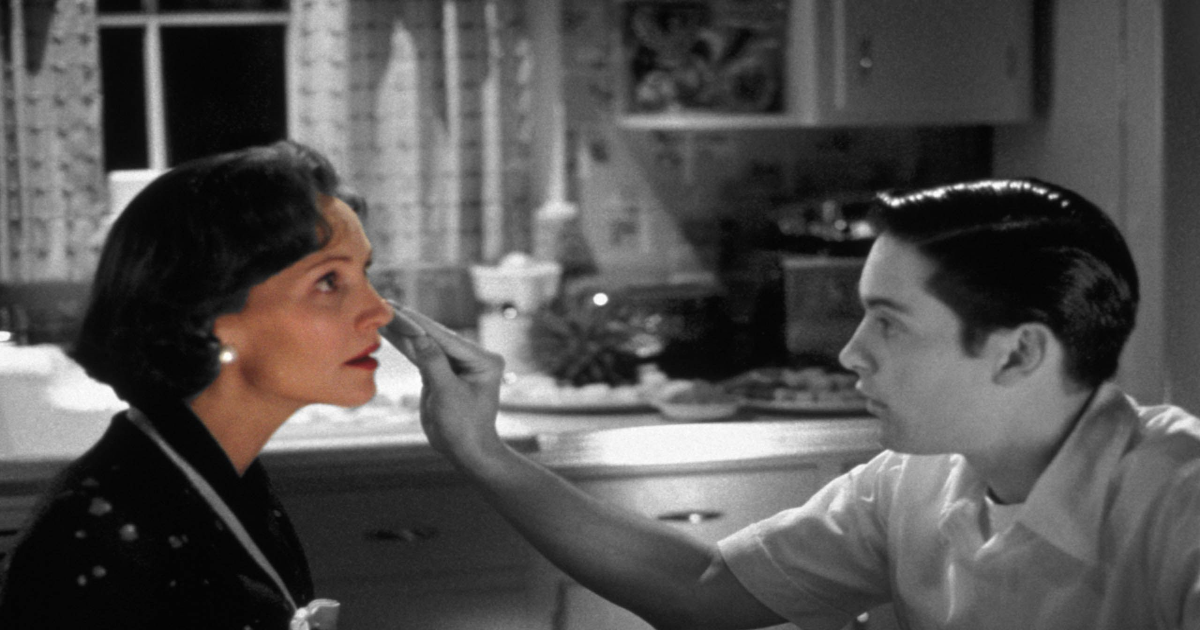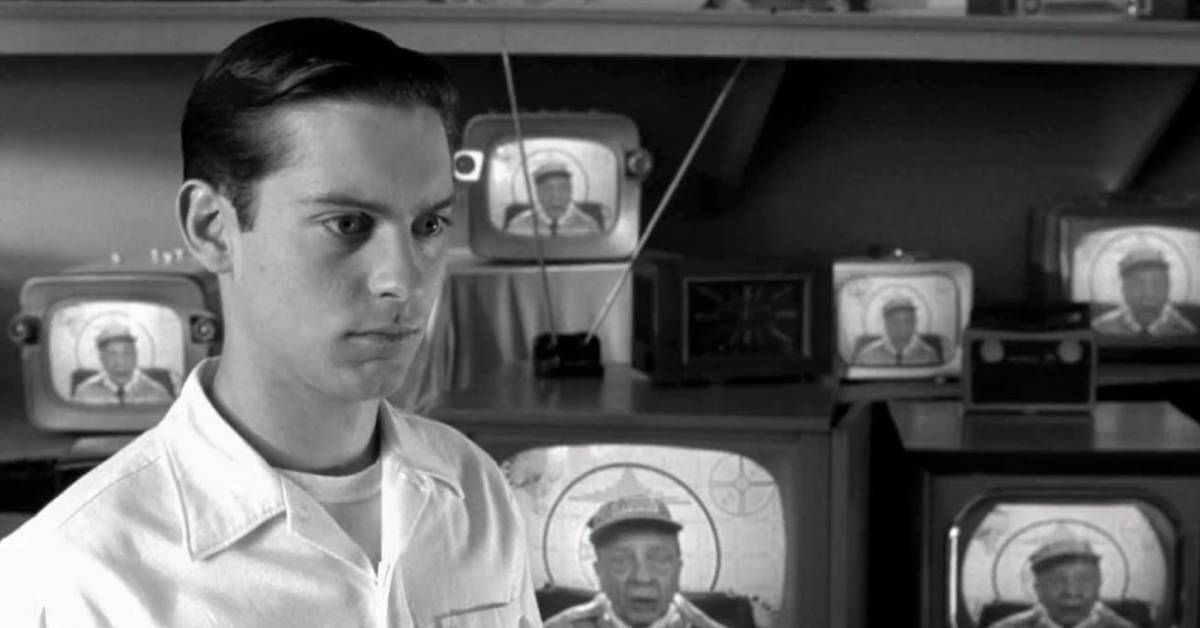In 1998, writer/director Gary Ross released Pleasantville, his look at what happens when two very modern-day siblings are magically transported into the past via a retro TV show called, you guessed it, Pleasantville. The movie's tagline was, "Nothing is as simple as black & white," which feels like a metaphor for society today in light of racial tensions, the Covid-19 pandemic, Roe v Wade drama, the political divide the world is facing, and straight-up misogyny being played out from coast to coast. (Full disclosure: I spent about two years working on this film as Ross' assistant. I was there from the time he started filming it until the film was released in studios — and I'll get into the background of that in a moment.)
Prior to Pleasantville, Ross was best known for Big starring Tom Hanks and Dave starring Kevin Kline. In the years since Ross created, filmed, and released Pleasantville, he's been a busy man. He adapted the novel and directed 2003's Seabiscuit, he wrote 2008's The Tale of Despereaux, adapted the novel and directed the first The Hunger Games movie, wrote and directed 2016's Free State of Jones, and wrote and directed 2018's Ocean's Eight. Currently, Ross is at work on the screenplay for Desert Warrior.
The Production Process
Before we get into the problem with nostalgia that Pleasantville explores, let's talk about the production process. Initially, my job with Gary Ross was to keep people away from him while he wrote the screenplay for Pleasantville. Then, once we were in production, I was the production office assistant/clearinghouse for anyone who walked into our offices. Casting was a fascinating experience, and at one point Kate Hudson was considered for the role that eventually went to Reese Witherspoon.
Pleasantville wasn't Witherspoon's first starring role, she had appeared in Freeway in 1996, but her turn as Jennifer elevated her star power considerably. The same can be said of Tobey Maguire; it wasn't his first role, but it also elevated his star power with his great performance years before Spider-Man. Jeff Daniels was an easy casting decision, as Ross had worked with Daniels on his previous film (and his directorial debut) Trial and Error.
Filming took place around the clock, which contributed to the tragic death of the second assistant cameraman Brent Lon Hershman, who got in a car accident on his way home from the set in Long Beach, California to his home in West Hills after shooting for the day wrapped around 1am. It is thought that he fell asleep at the wheel of his car. Hershman's death actually led to a lot of labor rules regarding call times and the hours between wrapping production and the next day's production getting started being changed.
Once filming wrapped, we had crews of editors and colorization experts working 24/7. When the day shift left, the night shift came in. Ross shot the majority of Pleasantville in black and white, and there were men and women hand colorizing the film for when the residents and the town (and each individual flower and leaf) turned to color
The Lure of Nostalgia
It's easy to get sucked into the lure of nostalgia, as the recent hit WandaVision proves; that series sends its characters into a sanitized 1950s television show as well, and the connections between the two are hard to miss. In Pleasantville, Gary Ross created a fictional television show within the movie that harkened back to the hit shows of the 1950s including Leave It To Beaver and Father Knows Best. By the late 1990s, that world didn't exist anymore. As a society, we'd seen the Vietnam War, Watergate, the fall of the Berlin Wall, the impeachment of President Clinton over his affair with Monica Lewinsky, and, in Los Angeles, the Rodney King riots. Innocence was lost.
The internet was just starting to become widely used in the late '90s, and the era felt both dangerous and hopeful. That's why the lure of nostalgia is so powerful. In Pleasantville, twin siblings David and Jennifer experience the past in the way they know of it — how it is represented on television. However, that depiction rarely shows the more difficult sides of life. The hard times have been washed away by decades making the past look like a simpler, easier time to live in. The past becomes attractive because it gets fictionalized.
The Problem with the Nostalgia
When Tobey Maguire's David and Reese Witherspoon's Jennifer find themselves magically transported into a 1950s television show (thanks to the mysterious television repairman, played by the iconic Don Knotts), they experience a world that is foreign to them. Sure, David is a fan of the show and a nerd in his high school class, so he knows enough about the fictional world he and his sister find themselves in. He knows any action they take could change the future of Pleasantville (more on that in a moment).
In the town of Pleasantville, David is cast in the role of the popular athlete at school. His twin Jennifer, on the other hand, is popular and promiscuous in her real-life present, something she finds she cannot be in the 1950s when sexual mores were way more repressed and not discussed. She finds herself feeling out of place for the first time in her life, prompting her to take the actions that David warns her about. They cannot change history — or, really, they should not change history.
Change is Inevitable
David and Jennifer's presence in the past inevitably changes the citizens of Pleasantville. How could it not? The way they talk, the slang they use, and the views they espouse are all reflective of the 1990s, not the 1950s. As their influence begins to affect the town, the people who are not just exposed to David and Jennifer's modern values, but also accept them, turn into Technicolor versions of themselves, reflecting how their worldview has changed and evolved.
At the same time, the residents of Pleasantville who cling steadfastly to the ways of the 1950s remain in black and white and grow increasingly angry and agitated with the things they cannot understand or accept. Doesn't this remind you of the political and ideological divides society faces today? Biden's supporters versus Trump's cult, or those in favor of the vaccine for Covid-19 versus those refusing the vaccine, come to mind.
The Sanitization of the Past
Pleasantville's version of the past is, quite frankly, sanitized. It's a version of the 1950s presented for television audiences, not the actual decade that happened, reflective of the way popular media would so often gloss over actual problems. In Pleasantville, no one questions gender roles; men go to work and are the breadwinners, while women stay home to keep the house, raise the kids, and provide the post-work cocktail and dinner for their husbands. Everyone conforms, and no one resists (until David and Jennifer get to town at least).
The fictional show avoids anything that might be difficult in life. The local high school sports teams always win. The weather is always perfect. Bathrooms are devoid of toilets. The library is full of books with blank pages. Husbands and wives sleep in twin beds. There's no sex, no violence, no racial tension. Most tellingly, there is no world outside the town borders of Pleasantville. The world that exists in Pleasantville isn't realistic because there's no conflict. And the one thing human beings are excellent at (no matter the decade) is conflict. David and Jennifer introduce conflict (and free-thinking) to Pleasantville and irrevocably change the town and its citizens in the process.
The Dichotomy Between David and Jennifer’s Real World and Their Pleasantville Experience
In Pleasantville, everything is, well, pleasant. It's bland, it's predictable. In David and Jennifer's real life in the 1990s, things are a bit rockier. Their parents are getting divorced and their dad is largely absent from their lives. When the twins are magically transported into the television show, their distracted mother doesn't notice because she's preoccupied with the weekend trip she's taking with her much younger boyfriend. In the 1990s, David and Jennifer's teachers warn them about global climate change, the spread of AIDS and HIV, and the fallout from a coming economic crash (somewhat presciently predicting the crash of the NASDAQ and first dot-com bust that would happen soon).
The Past: In Conclusion
David and Jennifer's experience in Pleasantville changed them as much as their influence changed the citizens of the town. David, who is the popular kid in Pleasantville, opts to return to his own time, where he's the class nerd. Jennifer, who is popular in her own time, opts to stay in Pleasantville and live her life in a more traditional and less complicated way. The town of Pleasantville is forever changed much like the idyllic version of life in the 1950s gave way to the racial tensions, fight for civil rights, the Vietnam War, and the assassination of President John F. Kennedy in the 1960s.
In a 1998 interview with CNN, Ross called Pleasantville an "anti-nostalgic film," and we agree. Ross continued, addressing the danger of looking back to the past as a false ideal which should be 'made great again:'
You can drain the life and nuances and complexity out of things by homogenizing them to make everything harmoniously dull, flat, conflict-free, strife-free. In a complex and troubling world, who wouldn't want to simplify? Everybody does. Everybody wants to simplify and put up a picket fence. The tougher thing is to give yourself that kick to be alive and to be fully engaged and stay alive. I guess if the movie has a message, it's that it's worth that price, as difficult or strife-ridden as it may be.

